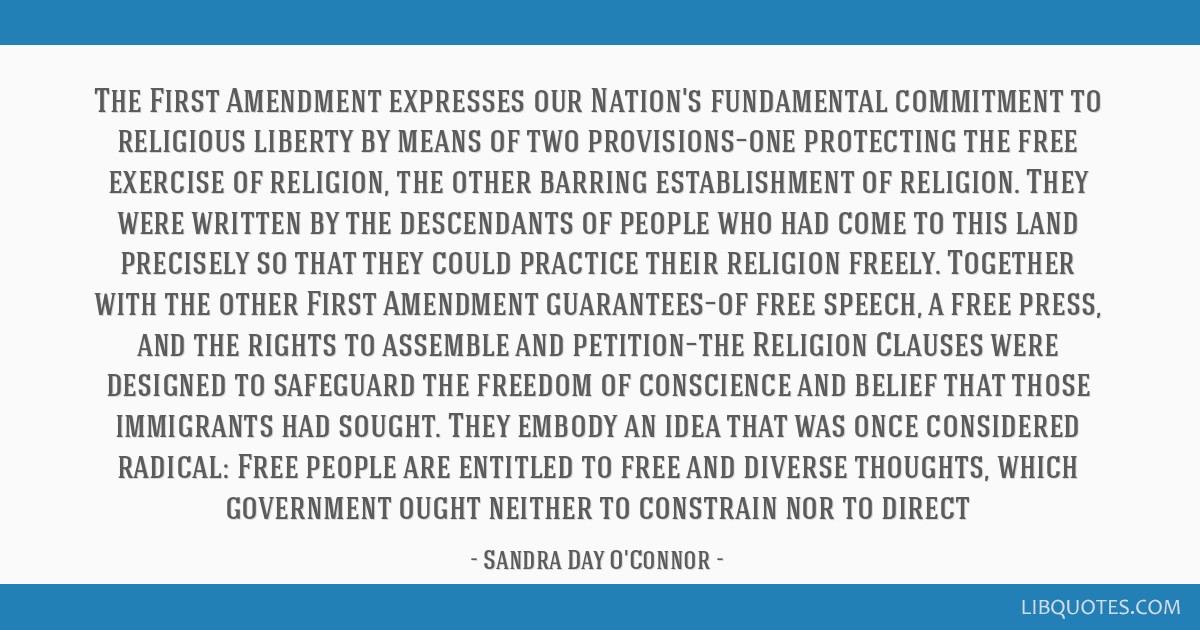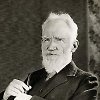The First Amendment expresses our Nation's fundamental commitment to religious liberty by means of two provisions–one protecting the free exercise of religion, the other barring establishment of religion. They were written by the descendants of people who had come to this land precisely so that they could practice their religion freely. Together with the other First Amendment guarantees–of free speech, a free press, and the rights to assemble and petition–the Religion Clauses were designed to safeguard the freedom of conscience and belief that those immigrants had sought. They embody an idea that was once considered radical: Free people are entitled to free and diverse thoughts, which government ought neither to constrain nor to direct
McCreary County v. American Civil Liberties Union, 545 U.S. 844 (2005) (concurring).





















